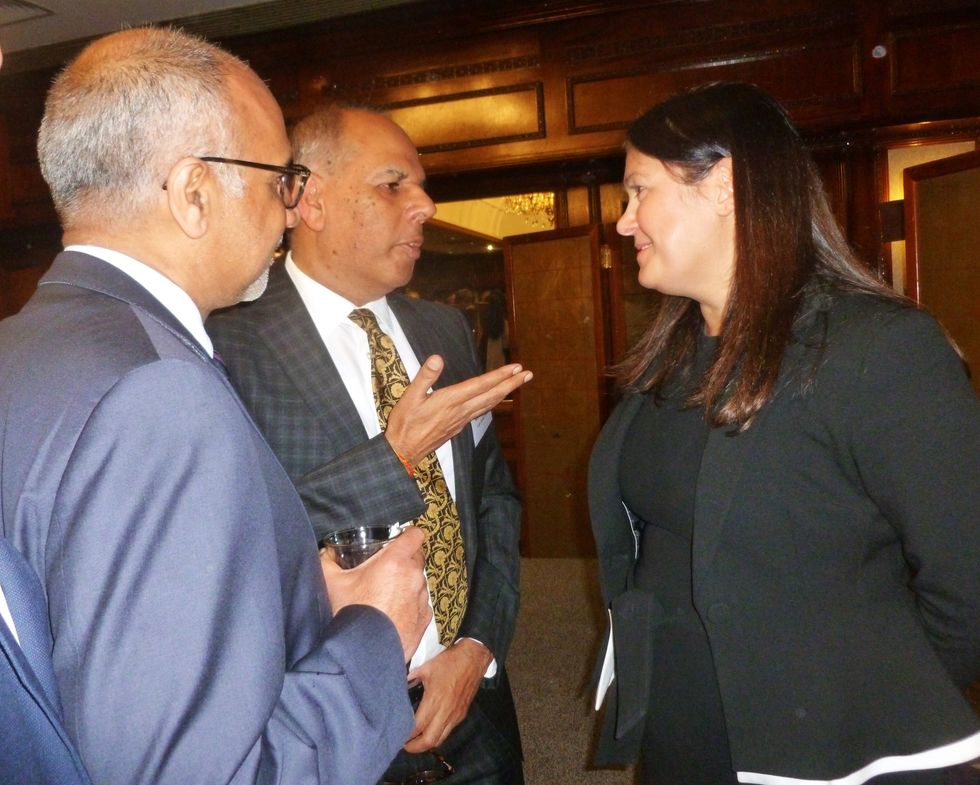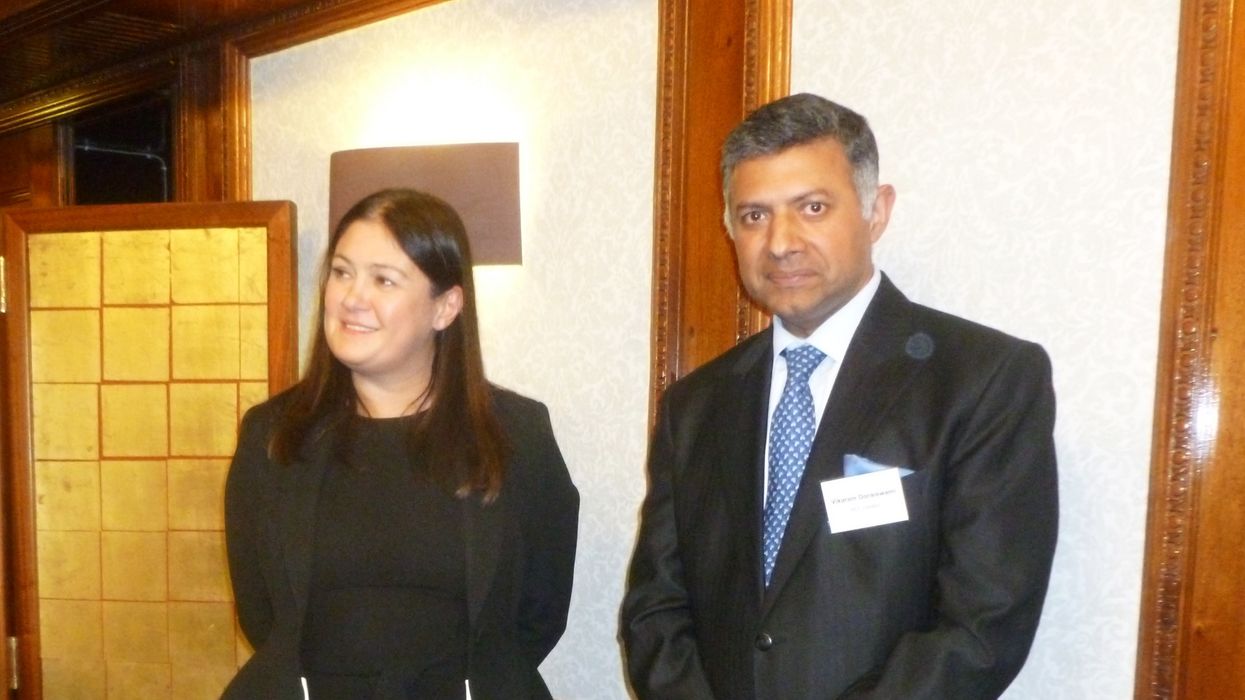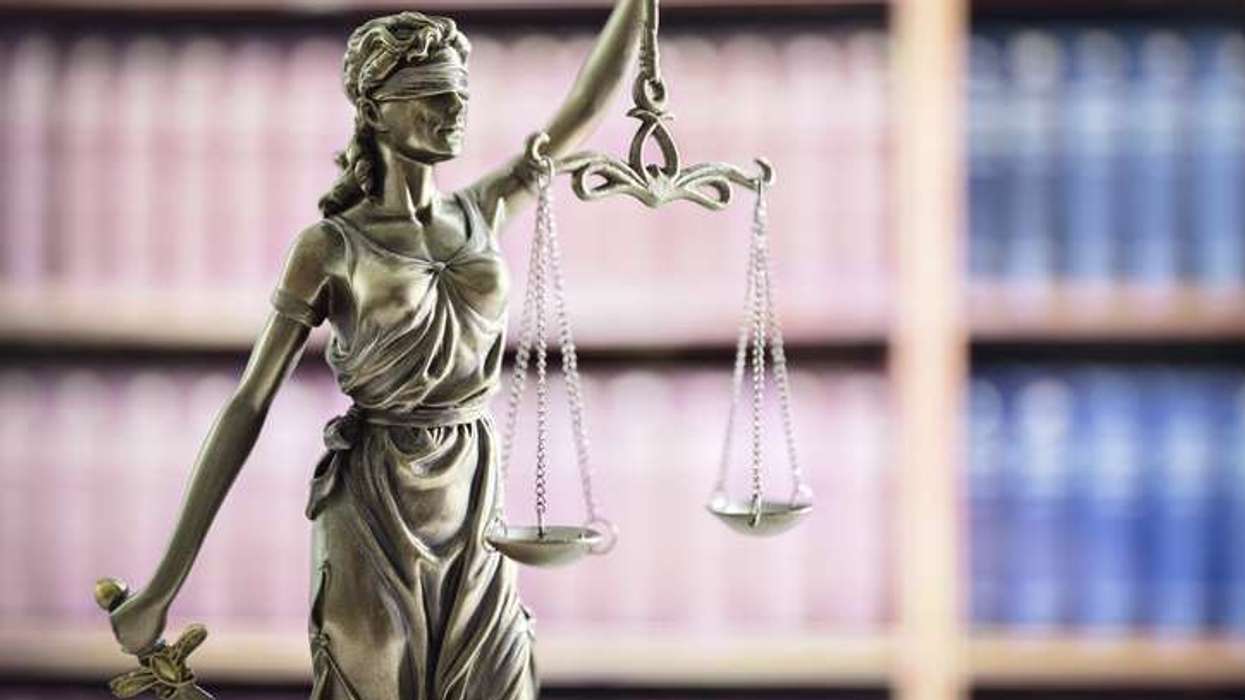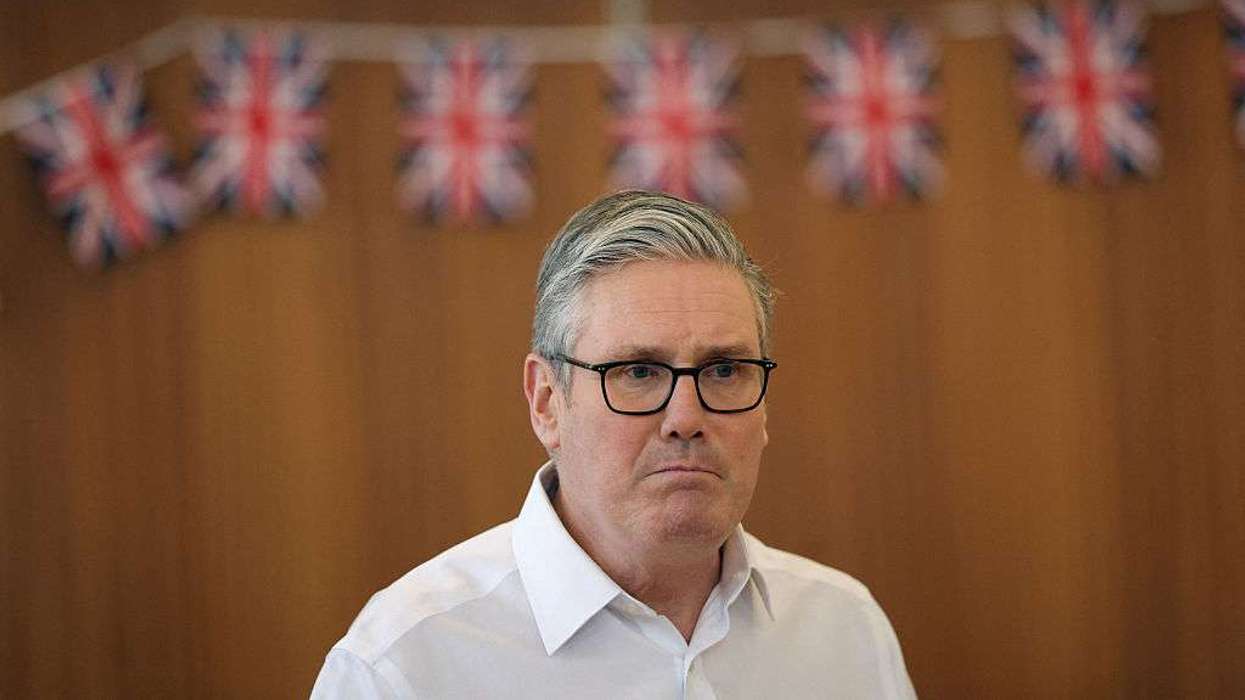LISA NANDY has said the UK hopes to forge a “closer cultural partnership” with India after she returns from her first trip to Mumbai and New Delhi as secretary of state for culture, media and sport from Thursday (1) to Sunday (4).
She made the promise at a reception hosted jointly last week by her department and the High Commission of India at the St James Court Taj Hotel in central London.
Some 100 guests, including representatives of the British Indian arts fraternity, held a minute’s silence to remember the victims of the terrorist attack on tourists in Pahalgam in Kashmir in which at least 26 people were killed and many injured.
Speaking about the “appalling terror attacks”, Nandy said she wanted “to offer our deepest condolences on behalf of the UK government to the families and to the victims and to offer our full support in their pursuit of justice and peace”.
“The relationship between India and the UK has always been strong and deep, and at times like this, friends matter,” she said. “As the prime minister [Sir Keir Starmer] has already said, we offer our deepest sympathies and we stand united with you in grief – and that (UK-India) relationship is personal for me.”
Nandy, who was introduced by the Indian high commissioner, Vikram Doraiswami, dwelt partly on the personal.
“Some of you will know that my dad grew up in Calcutta,” she said. “He still calls it Calcutta (rather than Kolkata), so apologies, it’s that generation, and that is where my Indian family still live.
“They are intensely irritated I’m going to Mumbai and Delhi, and not to West Bengal. I’ve had to promise that I will go back very soon.”
Lisa Eva Nandy was born on August 9, 1979, to an Indian father, Dipak K Nandy, and an English mother, (Ann) Luise Byers – the daughter of Lord Byers, who was former leader of the Liberals in the House of Lords.
Her father, who was born in Calcutta (now Kolkata) in 1936 and emigrated to Britain in 1956, turns 89 on May 21. He was an academic who was prominent in race relations and was the first director of the Runnymede Trust.
“There’s a truth there that I am deeply, deeply proud of my Indian heritage,” Nandy said. “Eric Hobsbawm, a great historian, once said that, as an immigrant, you live your life at a tangent to the world.
“And as the daughter of a dad who was born and grew up in India, who made his home here in the UK, I really understand that it gives you a different perspective on the world. It gives you a different perspective on society. And I’ve always felt very much a global citizen with a deep, deep sense of connection to India, to Indian culture and to the Indian people.
“I’m so delighted to be returning to India next week as the UK secretary of state for culture, media and sport. Our Labour government, led by Keir Starmer, is determined to strengthen our relationship with India across all sectors of our economy.”
Nandy recalled: “I grew up in Manchester, and it’s a city that was shaped by waves of immigration and always has been throughout our history.
“It’s a city, like so many of our towns and villages and cities across the UK, that is home to a strong British Indian community who have helped to define what it means to be British. From food and music to sport, dance, literature and fashion, we are second to none.”
She mentioned a number of prominent British Indians in the arts: “It is thanks to the contribution of brilliant actors like Dev Patel who has ensured that British Indian people are reflected in the story that we tell about ourselves as a nation, a story that is now told and known all over the world.”
Nandy had met the designer Harri (real name Harikrishnan Keezhathil Surendran Pillai), who was “at the forefront of British fashion. Kerala born and at the forefront of British fashion, he is, quite simply, one of our greatest exports.
“And for me, very personally, people like Gurinder Chadha, Meera Syal and Sanjeev Bhasker, who are here today, are the pioneers who showed my generation growing up as a mixed-race kid with proud Indian heritage in Manchester, that we belong to this nation and that our nation is enriched by the unique contribution of British Indians.
“You helped to shape and forge our sense of identity, and you gave us a sense of pride and confidence in who we are, and I can’t personally thank you all enough for doing that for us.
“These are the people who are the living, breathing bridge between our two nations. That is the message that I’ll be taking to Mumbai and to Delhi, because in film, fashion, literature, music and the arts, Britain and India lead the world, and together, we are formidable.
“And, so, it’s fitting that when I return, we will be seeking to forge a closer cultural partnership, one that will light up the world like the brilliant art of Chila Burman.”
She concluded by saying: “We’re having to navigate stormy times, and so much is unknown, so much is changing. But this relationship right now is more important than ever, a relationship that evolves but will always endure.
“And friends, we’ve lived through so many chapters together. The high commissioner alluded to that in all of their light and dark. But this is a friendship that matters. And this next chapter, we are determined, will be no different.”
She finished by quoting sentiments from Gitanjali by Rabindranath Tagore, one of her favourite poets: “In this next era, we will shoot in joy through the dust of the earth. (It is) old love, but in shapes that renew and renew forever.”

Nandy was preceded by the high commissioner who focused on the terrorist attack: “It is an important point to reaffirm who we are, why we are doing the things we do, and how creativity and the creative arts offer us an escape and a response to people whose only initiative and incentive seems to be to find ways of using violence as the first recourse rather than the last. In a world in which increasingly things are fractious, the creative arts are the best antidote we have to the hatred that often fills our minds.
“It is an opportunity to celebrate the partnership between India and the United Kingdom. Because if there is one strand in our long, sometimes complex but very enriching journey together as people and as cultures, it has been this warp and weft of our relationship in culture, in the field of creative arts.”
Doraiswami spoke of Bollywood film locations in the City of London; the love of Shakespeare and PG Wodehouse in a country where 145 million people spoke English; the Jaipur Literary Festival; Indian classical dance and music that is performed in the UK; [musician] Apache Indian, popular TV comedies Blackadder, and Yes Minister; and cricket.
“The time is really now for India and the UK to look ahead on what the next generation of creativity could be,” the high commissioner said.
“The secretary of state’s visit to us is a huge opportunity to rediscover our partnership, to celebrate it afresh and to have great fun in doing so.”




